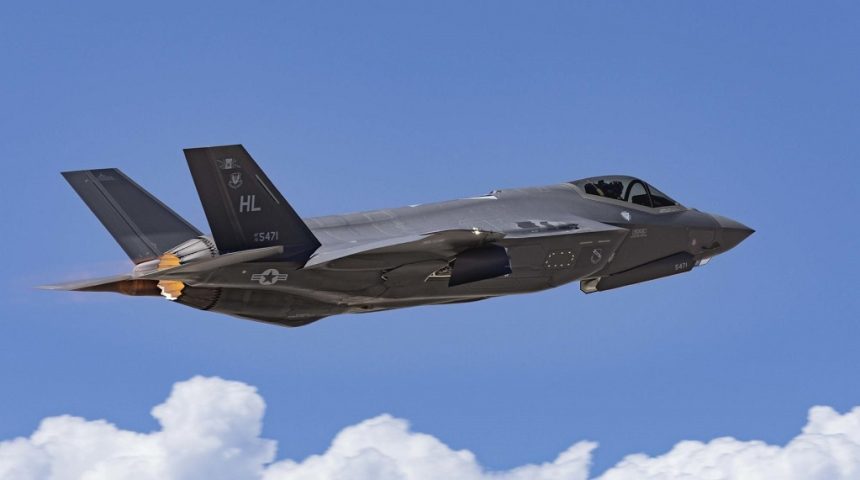The deliveries were halted when a Chinese alloy was found in the F-35’s turbomachine pumps.
About a month after they were halted, the U.S. Under Secretary of Defense for Acquisition and Sustainment, Dr. William LaPlante, signed a National Security Waiver to resume the deliveries of the F-35 Lightning II on October 8, 2022. The stop was decided due to the discovery of a Chinese-made alloy being used in magnets on the jet’s turbomachine pumps.
“Today, I signed the National Security Waiver that allows DoD to accept Lot 13 and Lot 14 F-35 aircraft containing non-compliant specialty metals in Honeywell Integrated Power Package Turbomachines”, said LaPlante in the press release from the U.S. Department of Defense. “Acceptance of the aircraft is necessary for national security interests. This determination applies to a total of 126 F-35 aircraft awaiting delivery or to be delivered under the Lot 12-14 production contract. This determination applies from the date of my approval through the acceptance date of the last aircraft delivered under that contract, which is currently projected for October 31, 2023.”
The reason behind the need for the suspension was a U.S. law and a separate Pentagon acquisition regulation that prohibit the use of certain specialty metals or alloys produced by specific countries outlined in the Defense Federal Acquisition Regulation series, which are China, Iran, North Korea and Russia. The alloy in question is a cobalt and samarium alloy “recently determined to be produced in the People’s Republic of China” and magnetized in the US, according to the F-35 JPO.
The alloy is used in a magnet contained in a Honeywell turbomachine that integrates the aircraft’s auxiliary power unit and an air cycle machine into a single piece of equipment, which that provides power for ground maintenance, main engine startup and emergency power. The magnet was provided by a “fifth-tier” subcontractor to the manufactured of the lube pump, which in turn supplies it to Honeywell.
“Honeywell has stopped work with the supplier providing alloy, and an alternative U.S. source is already on order with anticipated delivery next month,” said Lockheed Martin spokeswoman Laura Siebert. However, every one of the more than 825 F-35 fighter jets delivered so far contain the magnet made with the prohibited Chinese alloy. The component has been used in the 5th gen aircraft since 2003.
The F-35 Joint Program Office determined the pause won’t interfere with operations of F-35s already delivered because “the magnet does not transmit information or harm the integrity of the aircraft and there are no performance, quality, safety or security risks associated with this issue.” The waiver was expected as something similar already happened a decade ago, when the Pentagon granted a waiver to Honeywell to use Chinese magnets in other F-35 components in order to avoid new delays and cost overruns. The F-35 JPO doesn’t anticipate replacing the magnets in the aircraft already delivered.
More details were published by Breaking Defense, which reported LaPlante noted that previously delivered aircraft have “over 500,000 flight hours with no failures attributed to the high-performance magnets containing the specialty metal.” Also, Lockheed and Honeywell have identified a new US-based supplier for the alloys, which will begin deliveries this month, however the first F-35 with compliant magnets are expected to be in Lot 15.









